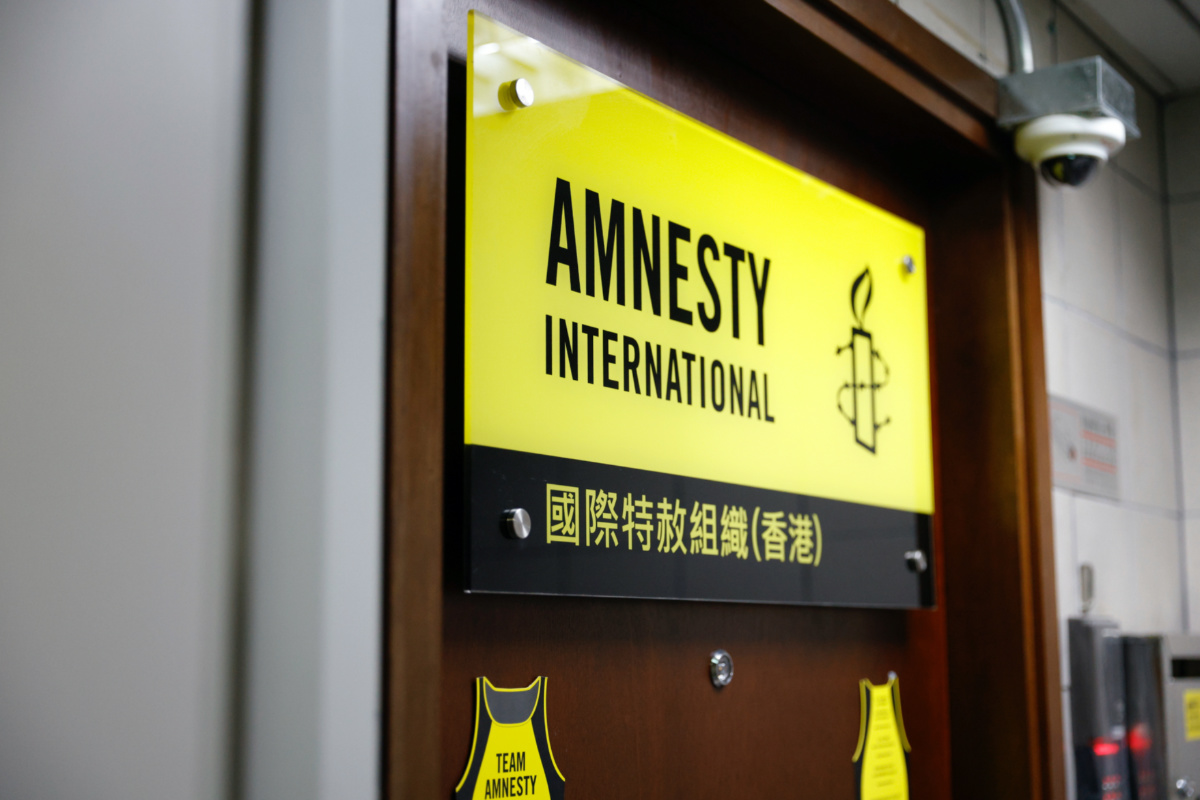Hong Kong, China
Reuters
International rights group Amnesty International said on Monday it would close its Hong Kong offices because a China-imposed security law had now made it “effectively impossible” for rights groups to work freely without the risk of reprisals.
Anjhula Mya Singh Bais, the chair of Amnesty’s international board, said in a statement that the two offices would close by year-end, noting an intensification of a crackdown that has forced at least 35 groups to disband under the law this year.
“This decision, made with a heavy heart, has been driven by Hong Kong’s national security law, which has made it effectively impossible for human rights organisations in Hong Kong to work freely and without fear of serious reprisals,” said Singh Bais.
“The environment of repression and perpetual uncertainty created by the national security law makes it impossible to know what activities might lead to criminal sanctions,” she added.

The Amnesty International Hong Kong office is seen after its announcement to close citing China-imposed national security law, in Hong Kong, China. on 25th October. PICTURE: Reuters/Tyrone Siu.
A Hong Kong Security Bureau spokesman said in response to a Reuters request for comment that “every person or organisation must abide by the laws of Hong Kong,” and that the security legislation “upholds human rights”.
In the past, Hong Kong had served as one of Asia’s leading NGO hubs, with groups drawn to its robust rule of law and wide-ranging autonomy – guaranteed for Hong Kong when control over the former British colony was returned to Beijing in 1997.
Among the groups to have disbanded this year are several leading trade unions, NGOs and professional groups, while a number of other NGOs including the New School for Democracy have relocated to the democratic island of Taiwan.
Hong Kong and Chinese authorities say the national security law enshrines individual rights, justifying the laws as necessary to restore stability after mass protests in 2019 when millions took to the streets over many months.
Protesters have long called on China’s Communist leaders to abide by its constitutional promise to grant the city broad freedoms and eventual full democracy under a co-called “one country, two systems” arrangement.
Since the implementation of the security law, however, authorities have crushed a once vibrant civil society, and curbed free speech and protests. Many leading pro-democracy activists and politicians have been jailed or forced into exile.
Under the broadly defined security legislation, subversion, secession, collusion with foreign forces and terrorism can be punished with up to life in jail.
“Its sweeping and vaguely worded definition of ‘national security’…has been used arbitrarily as a pretext to restrict human rights,” Amnesty added in its statement.





